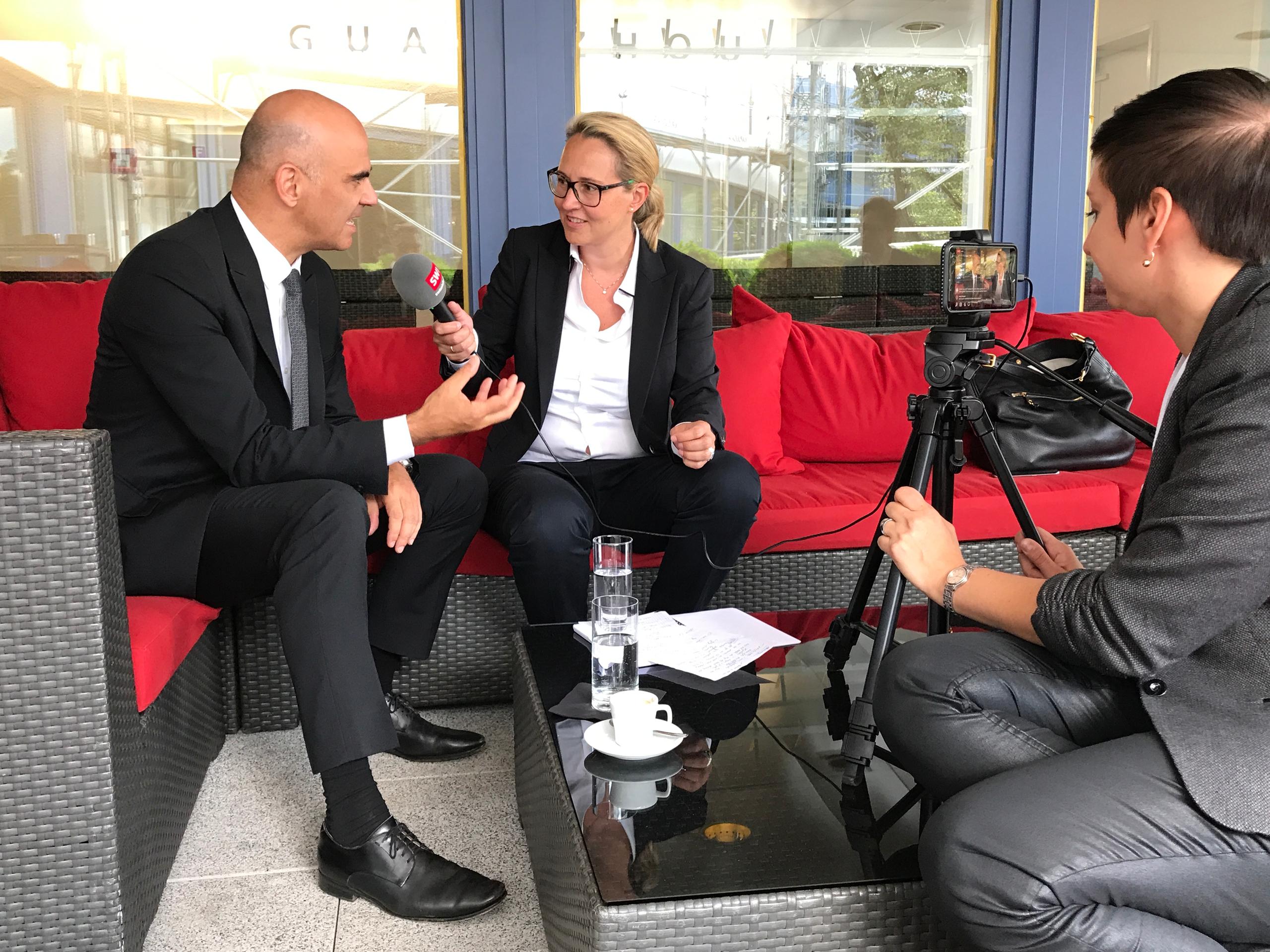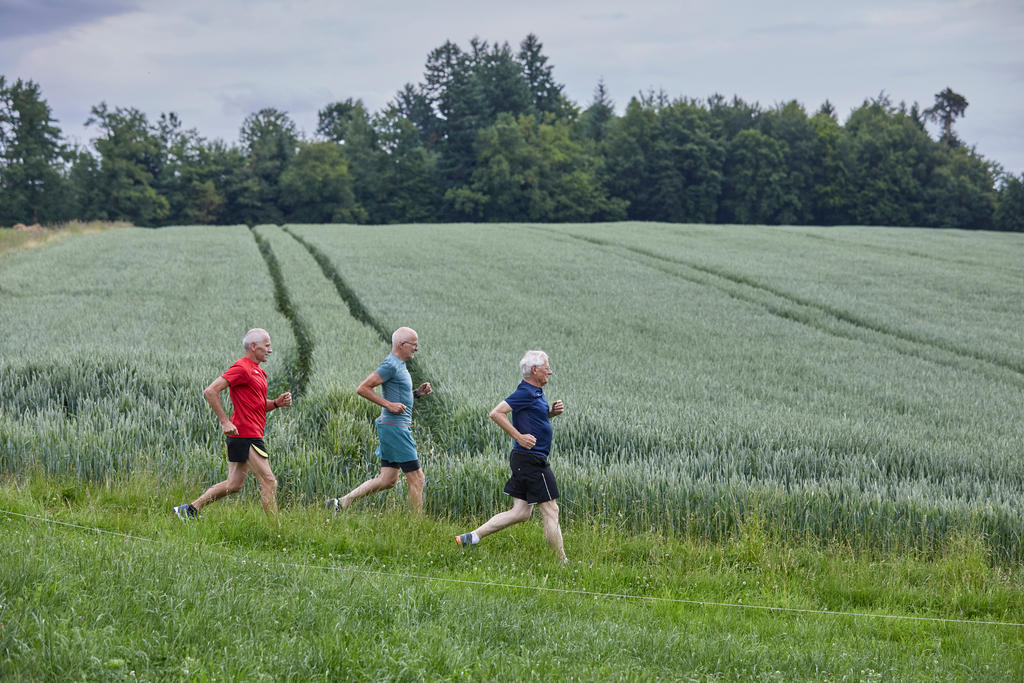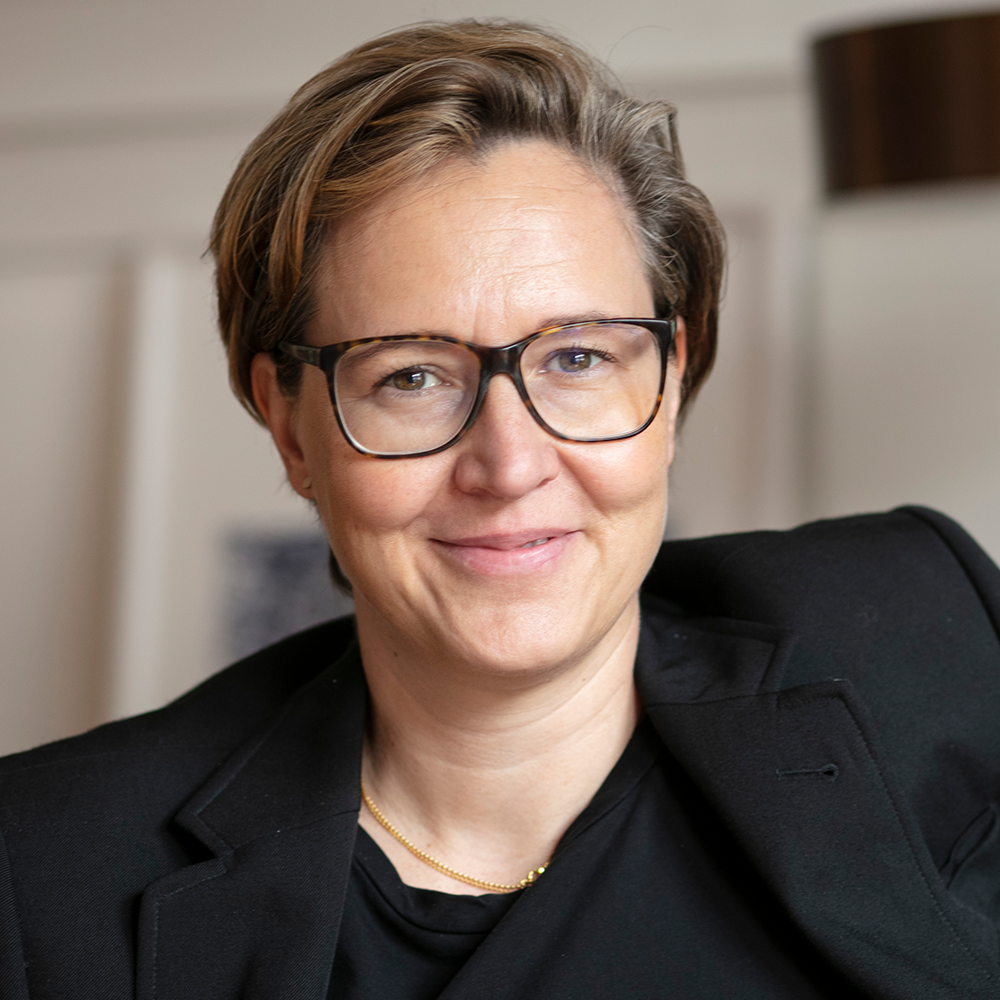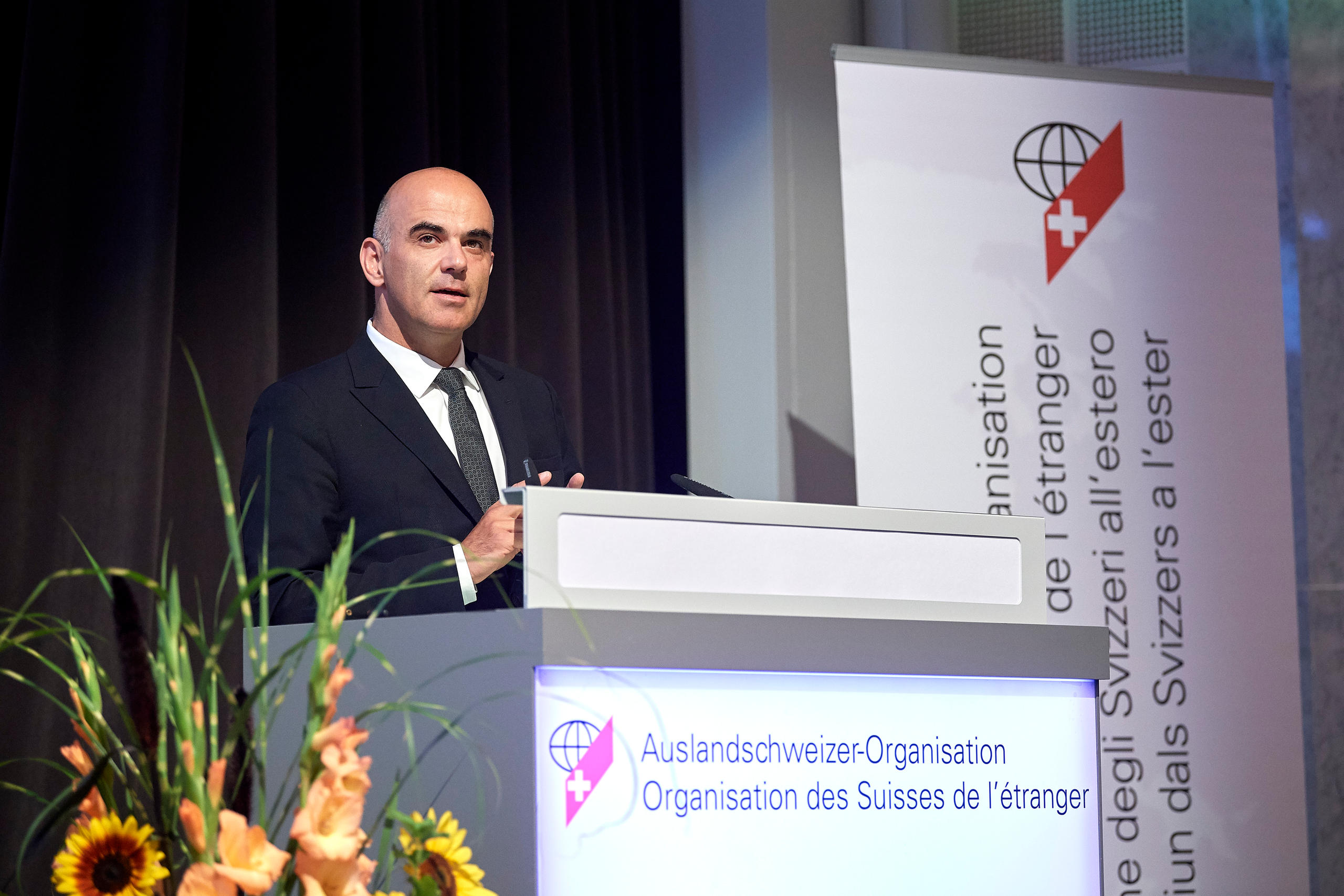Pensions: ‘If nothing changes, the young will pay twice’

Will Interior Minister Alain Berset be able to convince voters to back reforms of the old-age pension scheme? Interviewed by swissinfo.ch at the recent Congress of the Swiss Abroad in Basel, he discusses young people, women and billionaires.
Faced with an aging population, reduced economic growth and low interest rates, the government and a parliamentary majority are calling for a sweeping reform of the old-age social security system to ensure that pensions can still be paid for in years to come. The package, “Old Age Security 2020”, will go to a nationwide vote on September 24.
swissinfo.ch: The Swiss Abroad Council clearly backed the pension reforms – good news for you. But people under 39 are undecided. How do you convince them?
Alain Berset: For the younger generation, the worst situation would be for nothing to happen. Today the young generation pays into the second pillar [see box]: every year around CHF1.3 billion ($1.34 billion) is redistributed in favour of the older generation. That’s completely unfair. If you want to abolish this injustice, you have to accept these reforms.

More
Can ‘Old Age Security 2020’ guarantee pensions?
A second point involves the first pillar: there’s a deficit in the first pillar. What will happen to the younger generation if nothing changes? They will continue to make contributions and in ten to 15 years have to reduce the debt. So young people will be asked to pay up twice.
swissinfo.ch: From 2019, new recipients of the old-age pension will get an additional CHF70 per month. Why must millionaires and billionaires also receive this increase, and not just those who need it?
A.B.: Because they are co-financing it considerably. Former cabinet minister Hans-Peter Tschudi [interior minister 1959-1973 and, like Berset, a member of the centre-left Social Democratic Party] was responsible for four pension reforms – in 13 years. He always adapted the pension system to the real needs of the people.
Today we’ve got 20 years of stalemate behind us – that’s a catastrophe that we can no longer afford. Tschudi said: “The rich don’t need the pension system; the pension system needs the rich.” That is the solidarity of the first pillar. Whoever pays into the pension system receives a pension.
swissinfo.ch: What about solidarity with women? Raising the retirement age for women from 64 to 65, in line with men, will hit them hard. They work at home for nothing and earn 20% less than men. How do you justify that?
A.B.: That’s why we’ve created a package out of the first and second pillars. If you work it out, you’ll see that the bill is positive for women. Here’s an example: a female cashier on a not particularly high salary retires at 64 – with an extra CHF70. Under the reforms, this woman can still retire early at 64, with as much or even more money than today. That means an improvement already in the first pillar.
Then there’s the second pillar. Women do a lot of part-time work or have multiple jobs. In the second pillar they are very badly covered – or not at all. That will change.
If you look at the increase in the age of retirement for women in isolation, you’re absolutely justified in seeing it as negative. But there are also big improvements – that balances it out.
swissinfo.ch: What will happen if the reforms are rejected?
A.B.: The baby-boomer generation will be able to retire whatever happens. The deficit in the first pillar will get bigger. Without reforms, this deficit will contribute to the pension fund running out in 2030. The second pillar will remain as it is today: the conversion rate will stay high. Redistribution at the expense of the younger generation will increase. So we’d have a second pillar that wouldn’t be fit for the future.
Three pillars
The current old-age security system, enshrined in the Swiss constitution in 1972, is based on the so-called three pillars:
The first pillar corresponds to the state old age pension, which aims to cover living needs during retirement. This programme is funded by compulsory contributions of workers and employers, and also by the government.
The second pillar is made up of employee contributory pension plans, which together with the basic old age pension are supposed to maintain a person’s standard of living after retirement. Managed by pension funds and insurance companies, these pension plans are compulsory for all employees. They are funded by contributions both from the employees and their employers.
The third pillar involves saving by individuals, aimed at filling any gaps and satisfying particular retirement aspirations. Some forms of this voluntary pension planning – retirement savings accounts and home purchases – benefit from tax incentives.
(Translated from German by Thomas Stephens)

In compliance with the JTI standards
More: SWI swissinfo.ch certified by the Journalism Trust Initiative





You can find an overview of ongoing debates with our journalists here. Please join us!
If you want to start a conversation about a topic raised in this article or want to report factual errors, email us at english@swissinfo.ch.